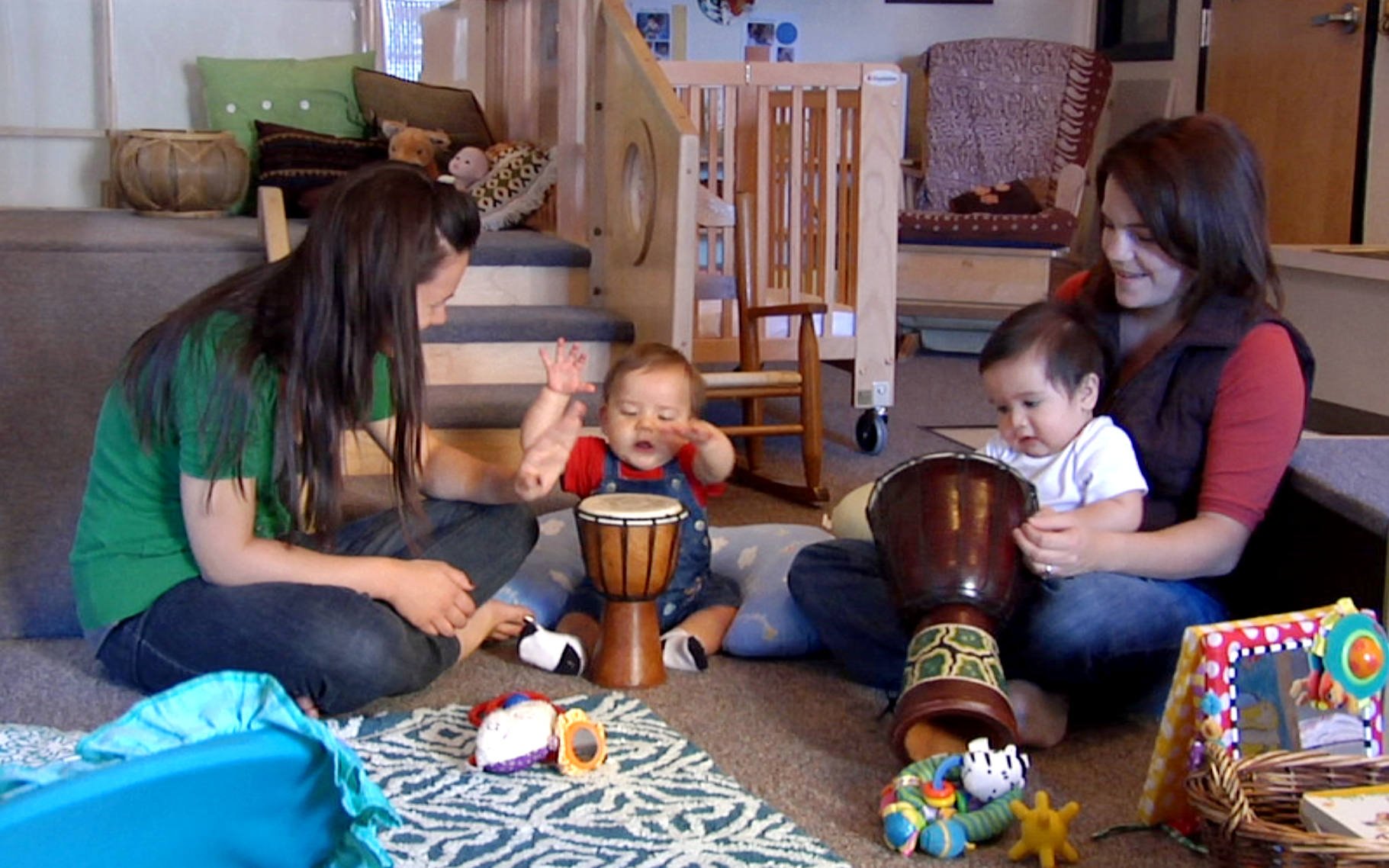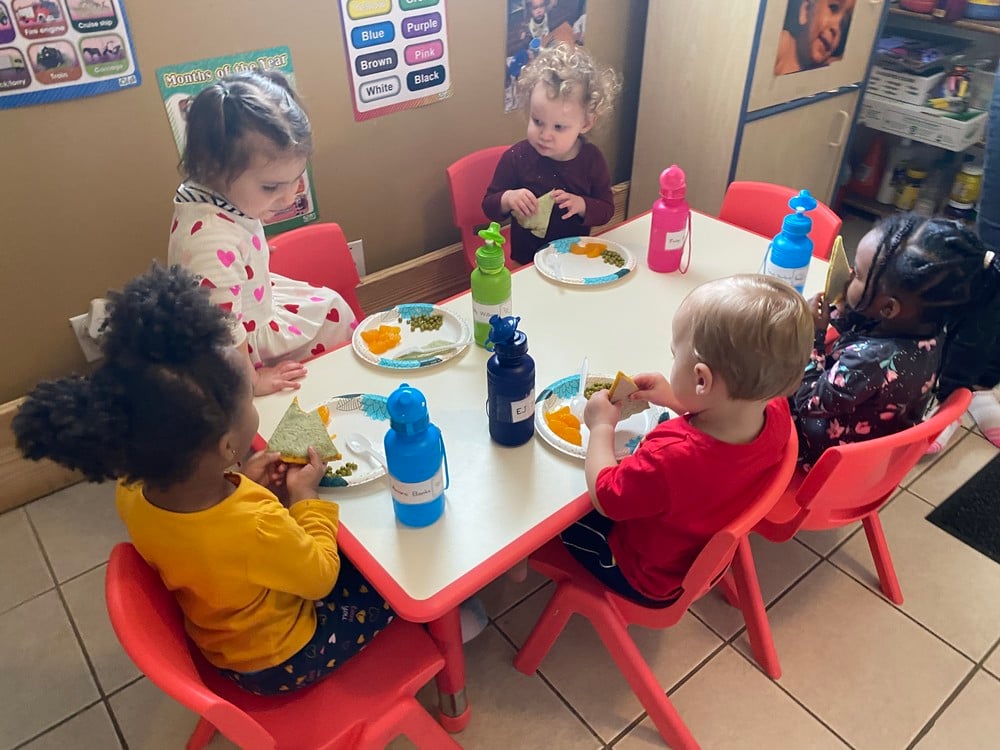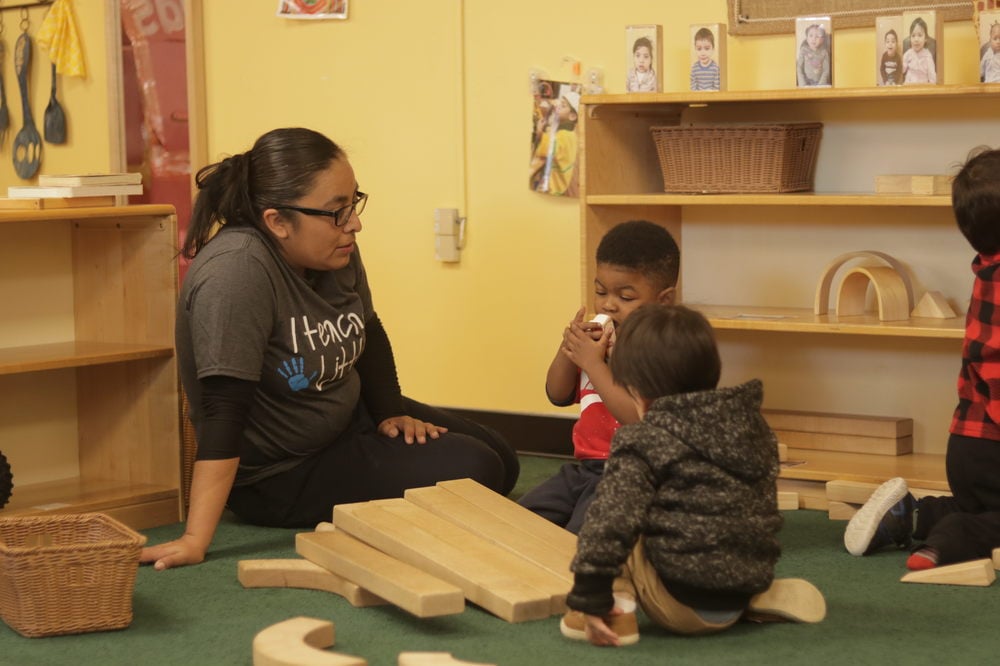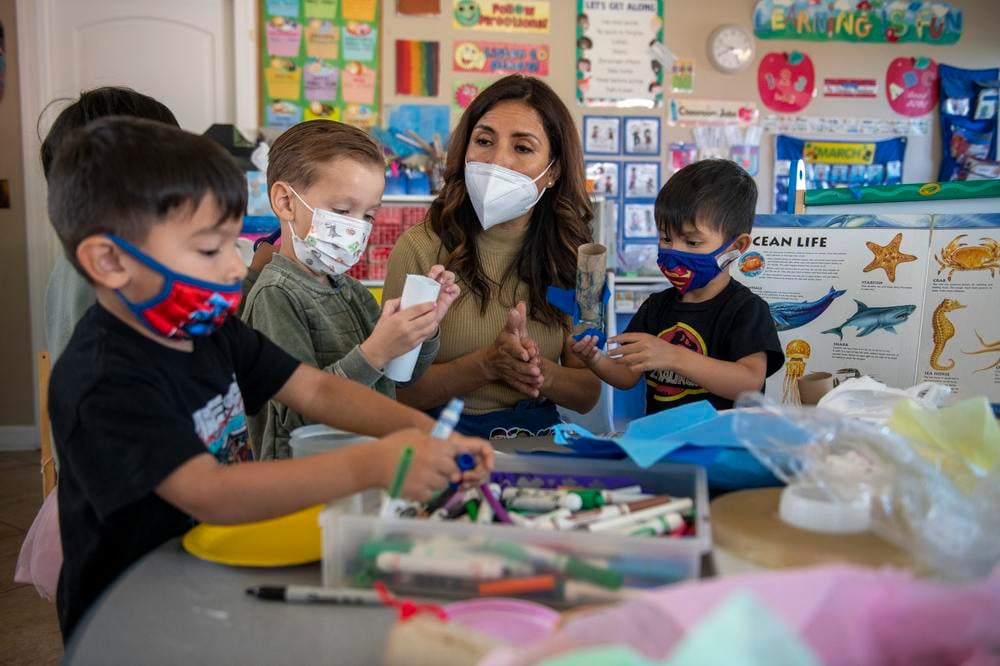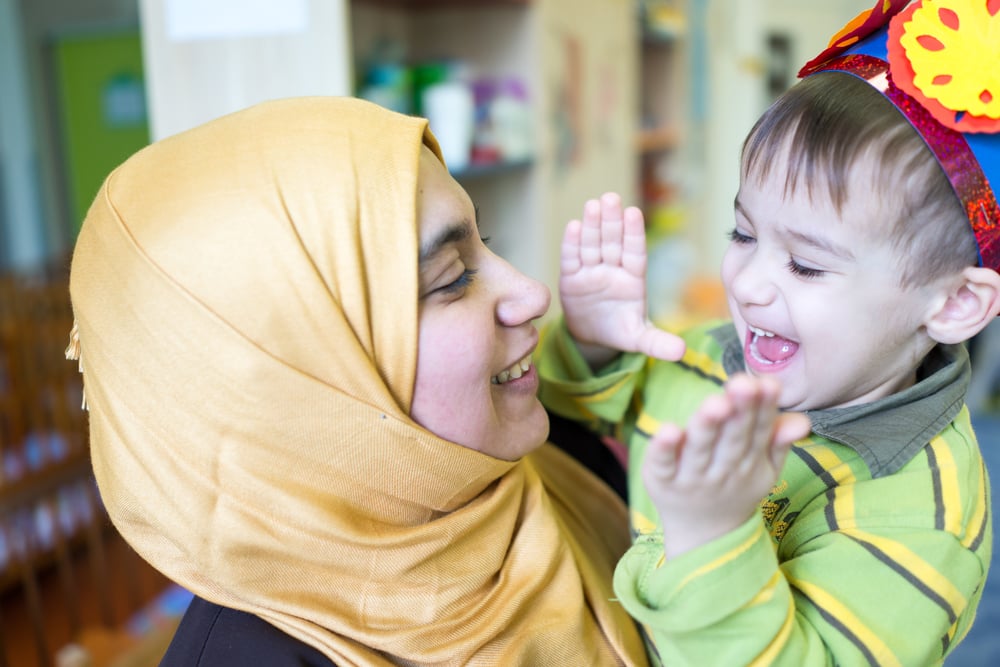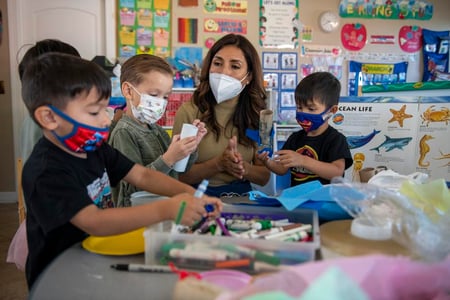
Today starts the kick-off to another Week of the Young Child! While I, and I know others at Teachstone, feel strongly that young children, their educators, and their families deserve to be celebrated every day, we’re excited to have an opportunity to intentionally highlight the impact you have on young children, celebrate the rapidly developing brains of young children, and recognize that each day, even beyond this week, offers ample opportunities for meaningful interactions.
As a former early childhood educator, and now a mom to a rambunctious 2.5 year old, I find myself pausing and finding even more to celebrate this week. Through the eyes of my daughter, I get to experience the world again as an innocent, joyful, and curious young child.
And, if it’s been awhile since you’ve paused to smell the flowers, to laugh at a silly sound your shoe made, or had an epiphany that your outfit matches someone else's, I hope this week affords you the opportunity to experience that joy, that wonder, and that excitement.
Week of the Young Child offers a time we all can be intentional in setting up a fun and playful activity to engage with the children in our care. And, we know that play = learning! Continue on reading below for some ideas to help you celebrate each day, and for even more activity ideas, visit NAEYC’s Week of the Young Child webpage.
Music Monday
|
|
Exploring music offers a magnitude of learning opportunities. From language development, to critical thinking skills, to fine motor skills, the potential for fun, and for learning, is endless. |
For infants and toddlers, consider planning for or trying the following.
- Give each child an instrument, and for infants try the wearable rattles that attach to their ankles or wrists, and have fun creating your own classroom band.
- Build a new playlist that can be the soundtrack to your day. Consider incorporating a wide range of genres, and throughout the day have children pause and reflect on the different beats and tempos make them feel.
For preschool and older children, consider planning for or trying the following.
- Use recycled materials, or even repurpose materials, like toys, in your classroom and have the children build their own musical instrument and put on a classroom performance.
- Challenge the children to make an instrument using their bodies!
- Build a new playlist that can be the soundtrack to your day. Consider incorporating a wide range of genres, and throughout the day have children pause and reflect on the different beats and tempos make them feel.
- Write your own classroom song, engage children in filling in the blanks with silly words, helping identify rhyming words, and then sing it to your favorite tune.
Tasty Tuesday
|
|
From language modeling and development, to math, to literacy, and even science, being intentional around the questions asked and the structure of meals can extend a favorite time of day, to a learning time of day! |
For infants and toddlers, consider planning for or trying the following.
- Use descriptive language to share the types of foods the children are eating. From the color, to the texture, to even the taste, see how many adjectives you can use and share while feeding the children.
- For older toddlers, if meals are provided, create a “picture menu” for the day’s meal that encourages the children to build their own meal. For example, if snack is 3 slices of cheese and 6 crackers, create a picture illustration that the children can reference to build their own plate (with your support).
For preschool and older children, consider planning for or trying the following.
- Create a recipe that the children can help you make, based on the ingredients and tools you have available. Use a mix of photos and text to build literacy skills, and support the children in doing the “cooking” themselves. Have them describe the process, and the taste when done.
- Invite families to bring in a traditional dish they enjoy in their family and experience new foods and flavors.
Work Together Wednesday
|
|
Intentional activities in which children can think critically, collaborate, and work together can drive their social and emotional learning and development. |
For infants and toddlers, consider planning for or trying the following.
- For young infants, sit them near one another, or have them participate in tummy time together. Help narrate what each child is doing to build awareness of others.
- Complete a classroom community activity together, such as a classroom painting that features every child’s handprint, or a classroom book that includes each child’s picture.
For preschool and older children, consider planning for or trying the following.
- Create a blueprint together, or in pairs, and then have the children bring the blueprint design to life within the block area.
- Have the classroom create their own version of Brown Bear, Brown Bear classroom book. Pair the children together and assign jobs they must complete together, such as identifying the order in which children appear in the book, the photographing of each child, the compilation of the book, etc.
Artsy Thursday
|
|
Inside each individual is a creative spark waiting to be lit. Celebrate and promote creativity, which also offers a plethora of learning opportunities, by expanding beyond your standard or go-to art activities. |
For infants and toddlers, consider planning for or trying the following.
- Create a sensory bag that allows them to explore and interact with colors. Using a ziploc bag, add oil to the bag, and then add water mixed with food coloring, to the bag. Double bag and secure the bag (can tape to the floor for tummy time) and watch the children explore the colors!
- Allow older infants and toddlers to explore finger paints and create their own work of art.
For preschool and older children, consider planning for or trying the following.
- Challenge their creative brains by providing a small sample of recycled materials and prompt them to create something new, but usable!
- Extend art outside with chalk, or bring the outside in and try creating art out of natural materials. Have you ever used a leaf as a paintbrush? What about a pinecone?
Family Friday
|
|
Families are children’s first teachers. And, they play an important role in the child’s development and learning. Today is a day to celebrate them, recognize their impact, and continue to support them in the important work they do. |
For your families, consider planning for or trying the following:
- As family members drop off or pick up their child today, make an effort to say “thank you” and to celebrate what they do for their child.
- Save or take pictures of each day’s Week of the Young Child activity. Create a display of the work, or a digital book of the work, and share it with families. Either through an actual open house, or through a digital share out and invite families to recognize and celebrate the hard work of young minds at play.
- Share a recap of the weeklong activities, with some ideas for families to extend and continue these types of activities at home. Need help thinking of ideas? Check out this blog post!
Again, this week gives us an opportunity to not only have fun but to pause and say thank you. Thank you for the dedication you have to supporting young children.
Thank you for the impact you make on the future generations. And thank you, for seeing us as your partner in this important work.
We hope this week brings you joy, laughter, and lots of warm interactions. We cannot wait to see how you’re celebrating. Share your fun, your activities, your reflections and your ideas with us in this community post, or tweet us @teachstone.

